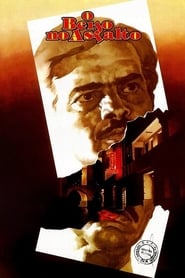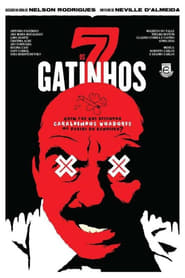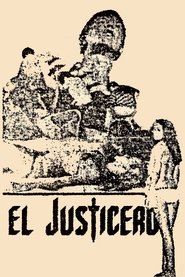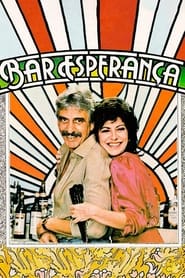detail profile thelma reston

Thelma Reston
Telma Reston
atau dikenal sebagai
Riwayat Hidup
Thelma Salim Reston (Piracanjuba, July 6, 1937 – Rio de Janeiro, December 20, 2012) was a Brazilian actress.
She has had an extensive career in theatre, television and film.
She was awarded at the Gramado Festival for her performance in the film Os Sete Gatinhos (1980).
Info Pribadi
Peran Yang Di Mainkan Thelma Reston
 Writer Slvio Proena needs to travel...
Writer Slvio Proena needs to travel...The Naked Man 1997
Writer Sílvio Proença needs to travel to São Paulo in order to promote his new book. At the airport, he meets a group of old mates. With the boarding canceled due to a strong storm, the group goes to the apartment of Marialva, daughter of one of Proença's friends. Seduced by Marialva's music and charms, Proença spends the night there, where he wakes up the next day, completely naked. Still groggy from his hangover, he goes to pick up the bread left outside the apartment; that's when the wind closes the door and leaves him naked outside.
 On the eve of an important...
On the eve of an important...Manobra Radical 1991
On the eve of an important surfing championship, a group of young friends travels along the Brazilian coast with the intention of training hard and having a chance to become professional in the sport. However, along the way, Guel, a surfer bum, falls in love with a rich girl.
 In 1987 in Goinia two paper collectors...
In 1987 in Goinia two paper collectors...Cesium-137 1990
In 1987, in Goiânia, two paper collectors find a radioactive capsule and sell it to the owner of a junkyard. Once the capsule is opened, more than 250 people end up contaminated by the substance called Cesium 137, being the biggest radiological accident in the history of Brazil.
 An unhappily married cleaning woman in...
An unhappily married cleaning woman in...The Story of Fausta 1988
An unhappily married cleaning woman in the slums of Rio entices all the money and gifts she can out of an elderly widower.
 Dede Guilherne Fontes is a Brazilian...
Dede Guilherne Fontes is a Brazilian...Dedé Mamata 1988
Dede (Guilherne Fontes) is a Brazilian teen who lives with his middle-class grandparents who are members of the local communist party. When his grandmother dies, his grandfather's health soon fades to the point where he can't speak or walk. The local party officials ask Dede to continue to family tradition and take over his grandfather's position of social authority, but when Dede is introduced to cocaine by his best friend Alpino (Marcos Palmeira), the attraction to drugs is more appealing to him than political activism.
 A rock singer goes to Brazil...
A rock singer goes to Brazil...Running Out of Luck 1987
A rock singer goes to Brazil to shoot a video, but winds up getting kidnapped and enduring a number of seemingly bizarre and hilarious events.
 Quilombo dos Palmares was a reallife...
Quilombo dos Palmares was a reallife...Quilombo 1984
Quilombo dos Palmares was a real-life democratic society, created in Brazil in the 17th century. This incredibly elaborate (and surprisingly little-known) film traces the origins of Quilombo, which began as a community of freed slaves. The colony becomes a safe harbor for other outcasts of the world, including Indians and Jews. Ganga Zumba (Toni Tornado) becomes president of Quilombo, the first freely elected leader in the Western Hemisphere. Naturally, the ruling Portuguese want to subjugate Zumba and his followers, but the Quilombians are ready for their would-be oppressors. The end of this Brave New World is not pleasant, but the followers of Zumba and his ideals take to the hills, where they honor his memory to this day. Writer/director Carlos Diegues takes every available opportunity to compare the rise and fall of Quilombo with the state of affairs in modern-day Brazil.
 When a pedestrian is hit by...
When a pedestrian is hit by...The Kiss 1981
When a pedestrian is hit by a bus, the simple clerk Arandir runs and kisses the moribund in a gesture of sympathy and unconditional pure love. Opportunist photographer Amado Pinheiro witnesses the scene and sees the opportunity to sell newspaper and, together with the despicable and abusive chief of police Cunha, accuses Arandir of homosexuality.
 Noronha is a low middleclass civil...
Noronha is a low middleclass civil...The Seven Kittens 1980
Noronha is a low middle-class civil servant who lives with his frustrated wife Gorda and their three elder daughters. The youngest one, virginal Silene, is unexpectedly sent back home. Noronha discovers she has been expelled from boarding school for having killed a female cat and her seven newborns in a hysterical fit. Many dark family secrets will emerge from that episode leading to tragic events.
 A black fisherman now working at...
A black fisherman now working at...Na Boca do Mundo 1979
A black fisherman now working at a local gas station, Antônio lives at the small beach town of Atafona. His biggest ambition is to stash enough money to leave to a big city with his fiancee, a mix-raced girl who sells fresh crabs to locals and wishes for a better life. When a rich white woman from the high society arrives to spend a few days away after ending a failed marriage, Antônio soon bonds with her and begins to change his plans.
 Eldorado a fictitious country in America...
Eldorado a fictitious country in America...Entranced Earth 1967
Eldorado, a fictitious country in America, is sparkling with the internal struggle for political power. In the eye of this social convulsion, the jaded journalist Paulo Martins opposes two equally corrupt political candidates: a pseudopopulist and a conservative. In this context, Paulo is torn between the madness of the elite and the blind submission of the masses. But, in this complex tropical reality, nothing really is what it seems to be.
 A shockingly irreverent followup to the...
A shockingly irreverent followup to the...El Justicero 1967
A shockingly irreverent follow-up to the rural austerity of Barren Lives, dos Santos’ Godardian social satire owes more than a nod to the self-conscious antics of the French New Wave. The pampered son of a general, El Justicero is a hipster playboy who fancies himself a James Bond/Jean Paul Sartre urban hero. “Archetypical” yet “full of contradictions,” he sees that justice is achieved for the disadvantaged while taking advantage of certain bourgeois perks. His exploits are closely followed and eventually directed by his biographer who decides a film is not only more lucrative than a book, but it gives him the luxury of reviewing previous scenes. Unlike Bond, El Jus eventually experiences an awakening which threatens to compromise the entertainment value and glamour of his life story. - Harvard Film Archive
 Originally produced for German TV Improvised...
Originally produced for German TV Improvised...Improvised and Purposeful: Cinema Novo 1967
Originally produced for German TV, Improvised and Purposeful is a firsthand look at the "Cinema Novo" movement (otherwise known as the 'Brazilian New Wave'). Director Joaquim Pedro de Andrade focuses on six Cinema Novo filmmakers working in Rio in 1967.
 The troubled adventures of a country...
The troubled adventures of a country... The fairy tale story of Maria...
The fairy tale story of Maria... A group of eccentric people gather...
A group of eccentric people gather... The story of a poor woman...
The story of a poor woman... A long time public servant is...
A long time public servant is... A man gets locked naked outside...
A man gets locked naked outside...